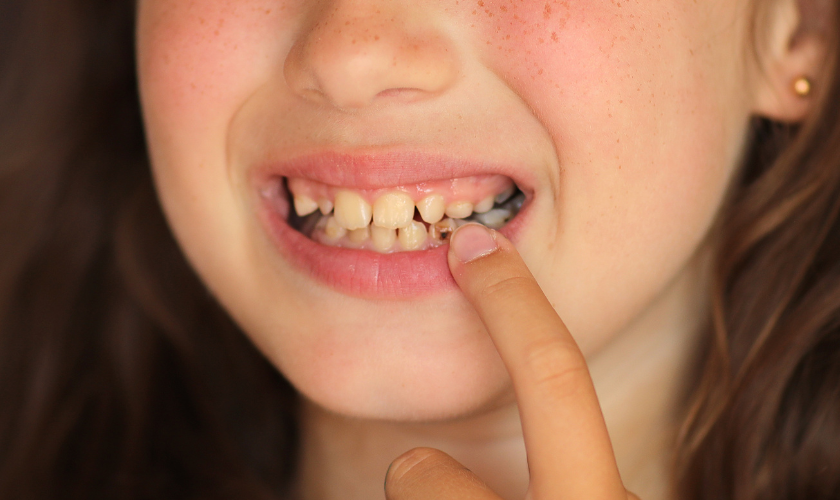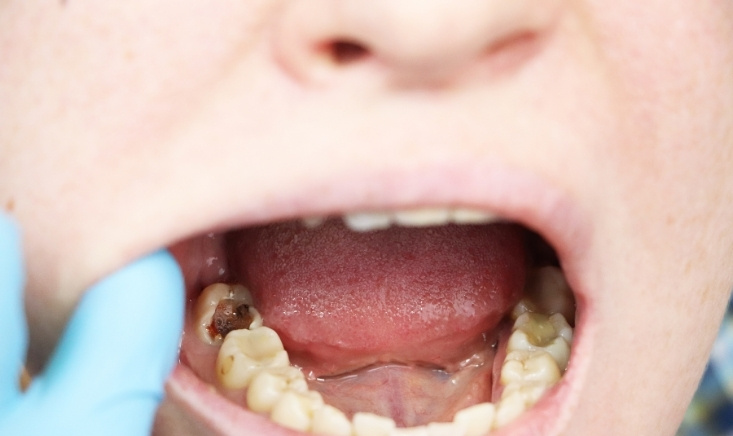2200 AW Grimes Blvd, Suite 100 Round Rock, TX 78665
Understanding Tooth Decay: Causes, Prevention, and Treatment

Maintaining good oral health is vital for overall well-being. One of the most common dental issues people face worldwide is tooth decay. Understanding the causes, prevention strategies, and available treatments for tooth decay is essential for maintaining a healthy smile and avoiding potential complications. In this comprehensive guide, we delve into the intricacies of this issue and provide insights into how to combat it effectively.
What is Tooth Decay?
Tooth decay, also known as dental caries or cavities, is the destruction of the outer surface (enamel) of a tooth caused by bacterial activity. It occurs when plaque, a sticky film of bacteria, builds up on teeth and produces acids that gradually erode the tooth enamel. If left untreated, this can progress deeper into the tooth, leading to pain, infection, and even tooth loss.
Causes of Tooth Decay
Several factors contribute to the development of tooth decay:
- Poor Oral Hygiene: Inadequate brushing and flossing allow plaque to accumulate on teeth, leading to decay over time.
- Sugary and Acidic Foods: Consuming foods and beverages high in sugar and acids promotes bacterial growth and enamel erosion.
- Bacterial Activity: Specific bacteria in the mouth feed on sugars and produce acids that attack tooth enamel.
- Dry Mouth: Reduced saliva production can result in a dry mouth, increasing the risk of decay as saliva helps neutralize acids and remineralize teeth.
Prevention Strategies
Preventing tooth decay involves adopting good oral hygiene habits and making smart dietary choices. Here are some effective prevention strategies:
Brushing and Flossing
Regular brushing with fluoride toothpaste and flossing help remove plaque and food particles, reducing the risk of decay. Aim to brush at least twice a day and floss once daily.
Balanced Diet
Limit sugary and acidic foods and beverages, such as candy, soda, and fruit juices. Opt for a balanced diet rich in fruits, vegetables, and dairy products to support overall dental health.
Fluoride Treatment
Fluoride helps strengthen tooth enamel and can be found in toothpaste, mouthwash, and drinking water. Your dentist may recommend fluoride treatments to protect your teeth further.
Regular Dental Check-ups
Routine visits to the dentist for professional cleanings and check-ups are essential for maintaining oral health. Early detection of tooth decay allows for prompt treatment and prevents complications.
Treatment Options
If tooth decay has already developed, various treatment options are available depending on the severity of the condition:
Dental Fillings
For minor to moderate cavities, dental fillings are often recommended. During the procedure, the decayed portion of the tooth is removed, and the cavity is filled with a durable material such as composite resin, amalgam, or porcelain.
Dental Crowns
For larger cavities or teeth with extensive damage, dental crowns may be necessary. Crowns are custom-made caps that cover the entire tooth to restore its strength and appearance.
Root Canal Therapy
When tooth decay progresses to the inner pulp of the tooth, causing infection and pain, root canal therapy may be required. This procedure includes removing the infected tissue, thorough cleaning and disinfection of the root canal, and sealing it to prevent further infections.
Tooth Extraction
In severe cases where the tooth is extensively decayed and cannot be saved, extraction may be the only option. Your dentist will discuss tooth replacement options, such as dental implants or bridges, to restore function and aesthetics.
Maintaining Optimal Dental Health
In addition to preventive measures and treatments, maintaining optimal dental health requires commitment and diligence. Here are some additional tips:
- Stay Hydrated: Drink plenty of water throughout the day to keep your mouth hydrated and stimulate saliva production.
- Chew Sugar-Free Gum: Chewing sugar-free gum after meals stimulates saliva flow, which helps rinse away food particles and neutralize acids.
- Quit Smoking: Tobacco use increases the risk of tooth decay and gum disease. Quitting smoking or using tobacco products benefits both oral and overall health.
- Use Fluoride Mouthwash: Incorporate fluoride mouthwash into your oral hygiene routine to further strengthen enamel and prevent decay.
Tooth decay is a common dental problem that can have significant consequences if left untreated. By understanding the causes, implementing preventive strategies, and seeking prompt treatment when necessary, you can maintain a healthy smile for years to come. Remember to prioritize your oral health by practicing good oral hygiene habits and scheduling regular visits to your Round Rock dentist. Take the first step towards preserving your teeth and enjoy a lifetime of healthy smiles!




